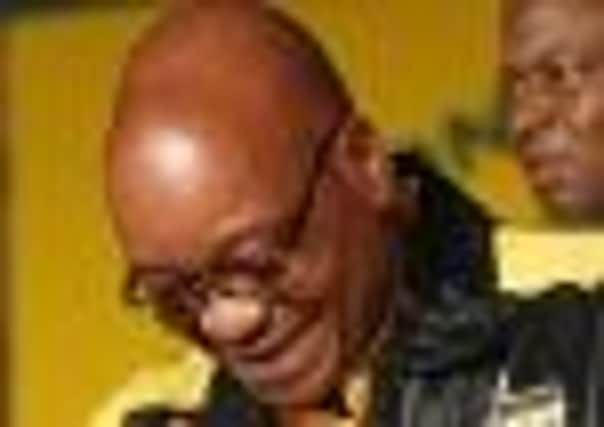Zuma calls on ANC to back him, despite stained image


The ANC, a liberation movement formed a century ago to fight apartheid, has been governing South Africa for 18 years but faces increasing criticism in the nation of 50 million people. Some 4,000 delegates gathered yesterday for the start of the party’s Mangaung (Bloemfontein) conference, and listened to Mr Zuma offer occasionally candid comments about the party’s issues.
Still, Mr Zuma made promises and said his government remained on track to change South Africa, attempting to appeal to delegates who will decide whether he or his quiet deputy Kgalema Motlanthe should take charge of the party. And while Mr Zuma long has been trailed by corruption allegations and questions about his personal life, he remains the favourite among delegates to lead the party and likely become South Africa’s president after the nation’s 2014 elections.
Advertisement
Hide AdAdvertisement
Hide Ad“We want to dismiss the perceptions that the country is falling apart,” Mr Zuma said in his speech televised live across the country. However, he later admitted: “The challenges we face – unemployment, poverty and inequality – are South African in their origin, and are deep and structural.”
The ANC remains the dominant political force in post-apartheid South Africa and opposition parties don’t receive the same support at the polls. However, South Africa has seen credit downgrades in recent months, as well as violent protests across its mining industry.
In a speech of more than one-and-a-half hours, Mr Zuma called the violence at Marikana an “indictment” of the ANC for not being there for the miners. He also criticised the violence and bribery that accompanied ANC meetings leading up to the Mangaung conference, which saw several people killed.
The 70-year-old Mr Zuma also criticised the process that the government uses to award contracts for allowing corruption that is “turning people we know into something else”. That comment, as well as others, drew murmurs from delegates that saw it as a reflection of the corruption allegations and claims of ethical impropriety that have clouded Mr Zuma.
He faces criticism over the millions of dollars of government-paid improvements made to his private home. That comes as most black South Africans, the base of the ANC’s following, remain mired in poverty.
The president also has been implicated in a corruption probe surrounding a 1999 arms deal, and faced accusations from the media about being unable to manage his own personal finances. Mr Zuma also has been criticised over his private life, including his 2006 trial for charges of raping a family friend that ended in an acquittal.
His main competition in the ANC is Mr Motlanthe, his 63-year-old deputy president and a former union leader. Mr Motlanthe offers what appears to be the opposite of Zuma’s leadership – a pensive and technocratic approach that differs from Mr Zuma’s crowd-pleasing comments and dancing.